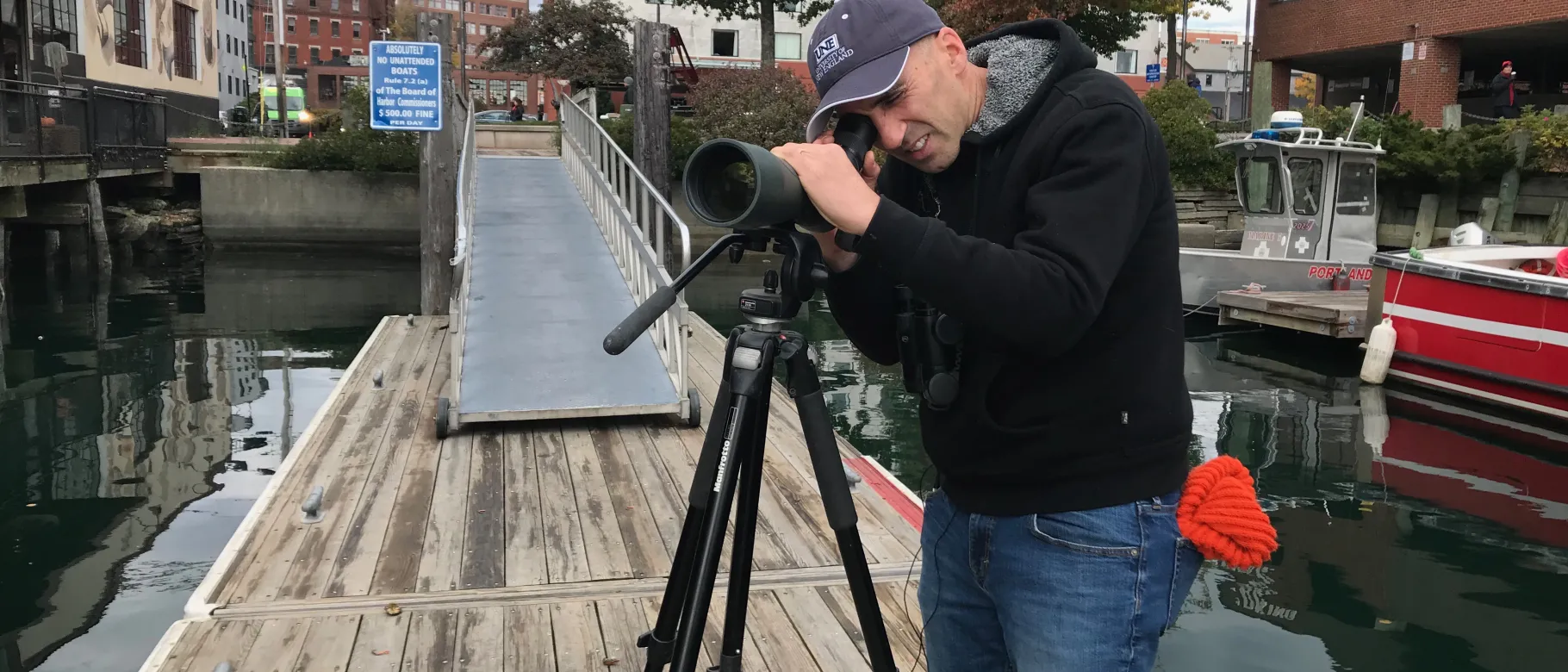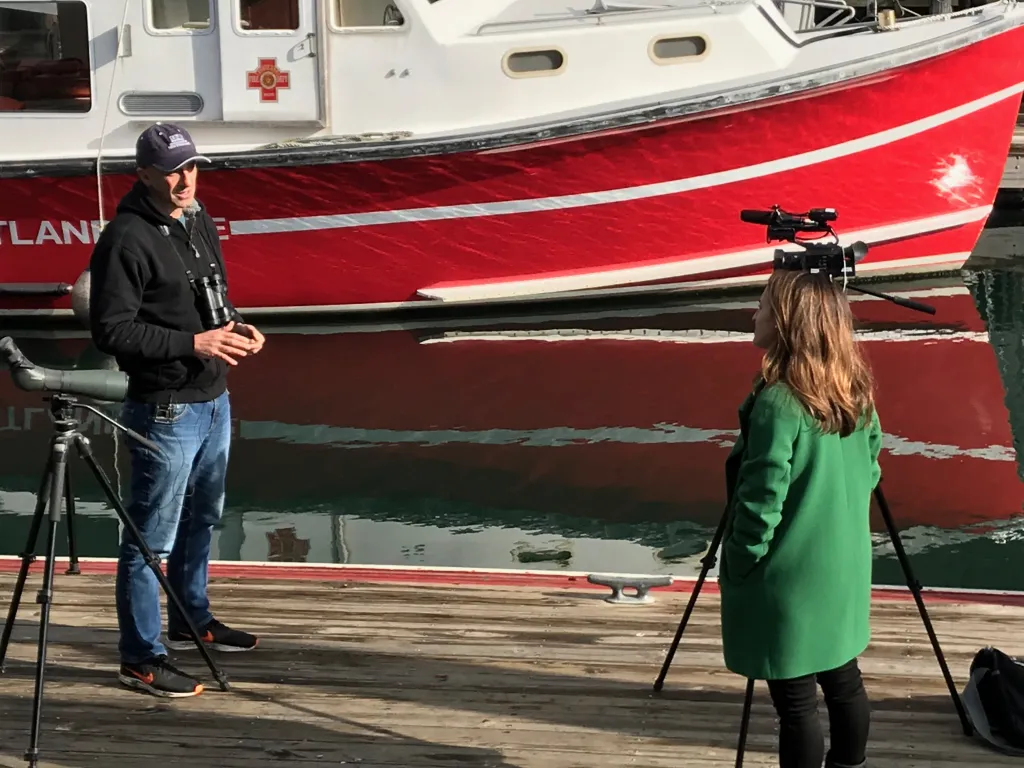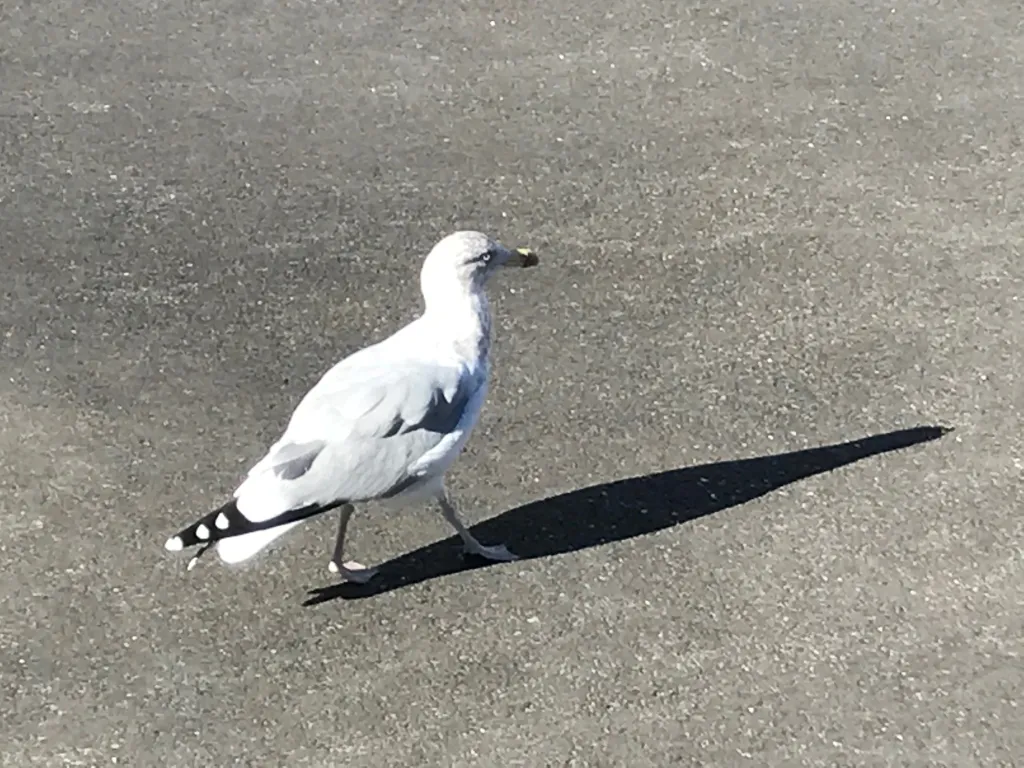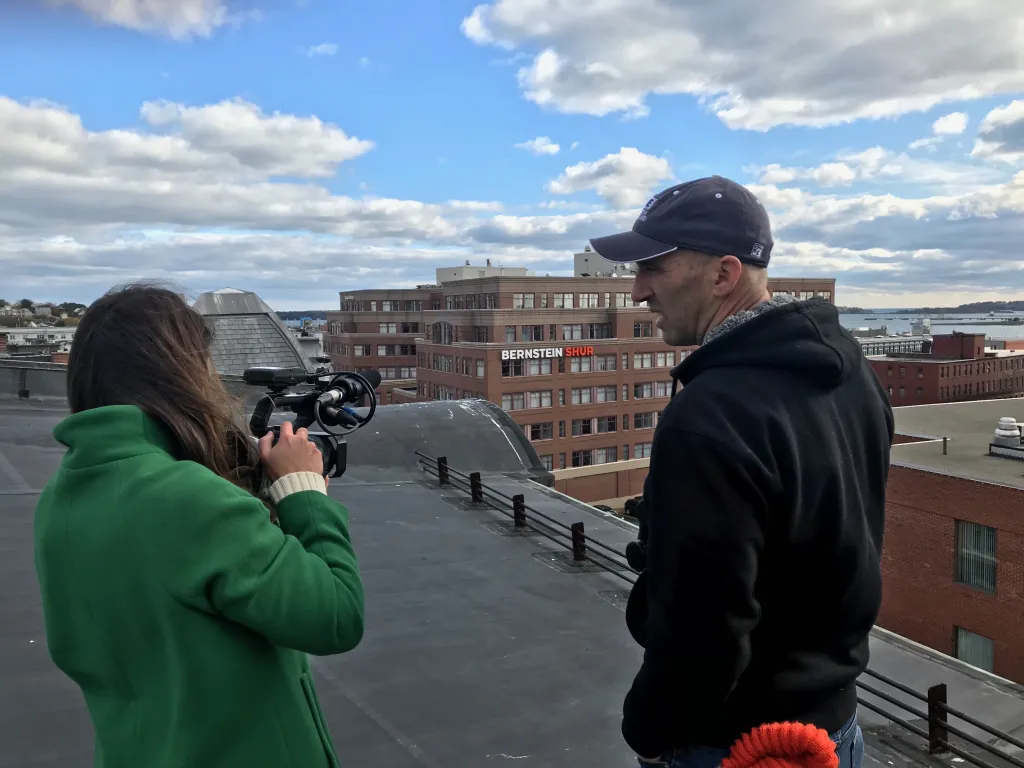Noah Perlut’s gull research featured on 'WCSH'

If you live near the Maine coast you have likely had an encounter with a gull at one time or another.
UNE’s Noah Perlut, Ph.D., associate professor in the Department of Environmental Studies, is studying gulls to learn more about what makes them tick. His research was recently featured in a report on 'NEWS CENTER Now' on WCSH. Perlut took anchor Lindsey Mills down along the Portland waterfront and high atop city rooftops where gulls nest.
Perlut is researching the costs and benefits of herring gulls nesting on rooftops as compared to nesting on islands. Herring gulls are the most common gull species in Maine.
His work has already turned up some interesting findings, including the fact that it is safer for the gulls to nest on city rooftops because there is less gull-on-gull predation than found on islands.
“The larger great black-backed gulls will eat the eggs and chicks of herring gulls,” Perlut says. “That’s a fairly dangerous situation.”
Perlut explains the larger gulls do not nest on rooftops.
“If a chick can hatch, its ability to survive is quite high on the rooftop compared to an island because there are fewer aggressive gulls there,” he says.
Perlut notes the biggest danger chicks face in the city is having their nests tossed off the rooftop by a building manager. By law, a nest can be removed unless it has an egg or chick in it.
Some of Perlut’s findings contradict commonly held beliefs. It may seem there are more gulls flying in and around Portland than ever before, when actually the gull population in the Gulf of Maine is declining. Research also shows the birds are not feasting on french fries and pizza as some people assume.
“One of the remarkable things that the data show is gulls are not eating garbage,” he explains. “They are eating marine food. They know what’s good for them, and that, to me, is really interesting, given how much garbage is available to them.”
Perlut began tagging gull chicks on Portland rooftops in 2011. Now, after maturing for five years, some of those birds are finally nesting. He is hoping the mature gulls will provide answers to questions he still has.
“I’m really interested to know if birds born in the city come back to breed in the city, or if they go to islands,” he commented.


